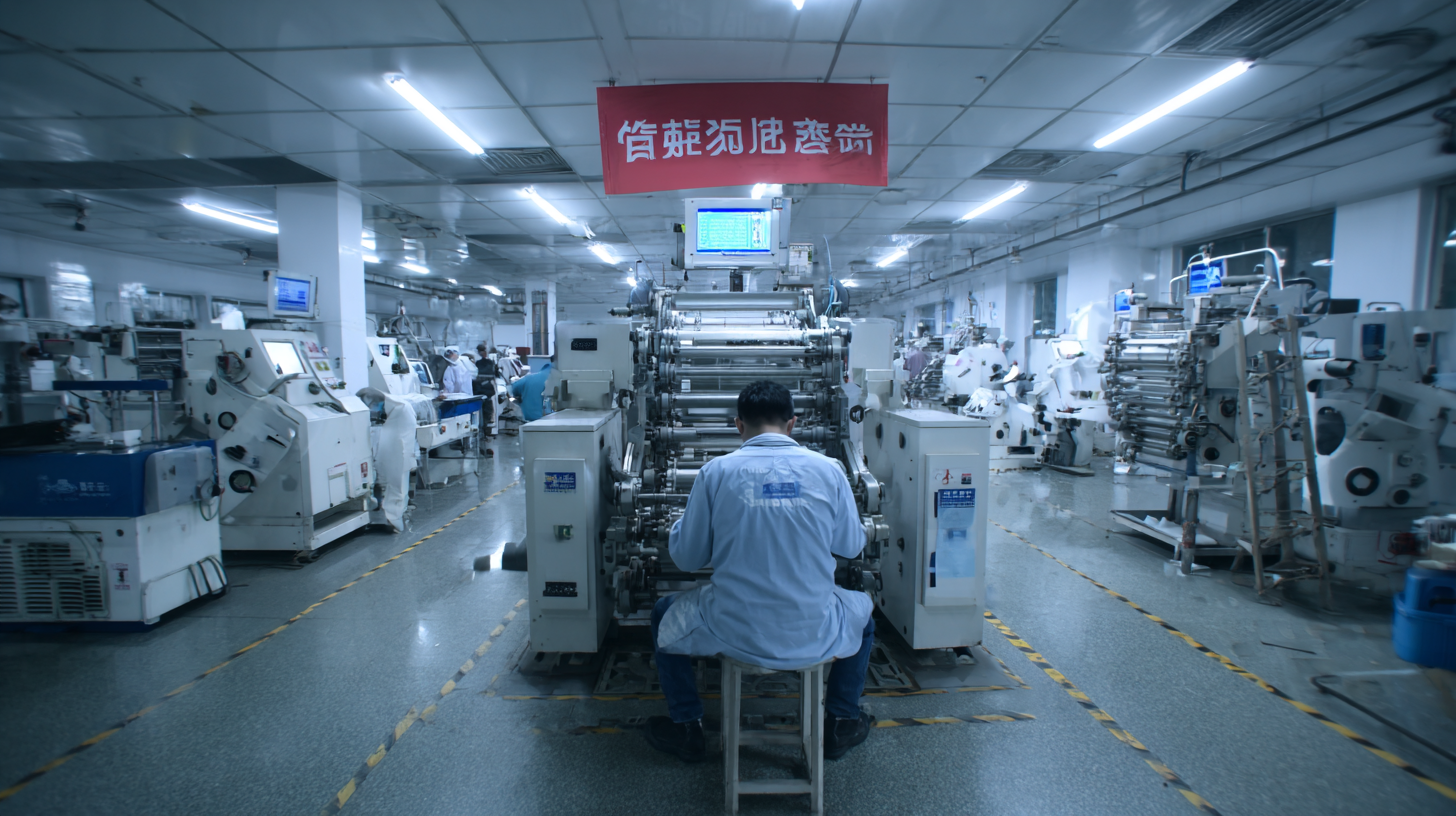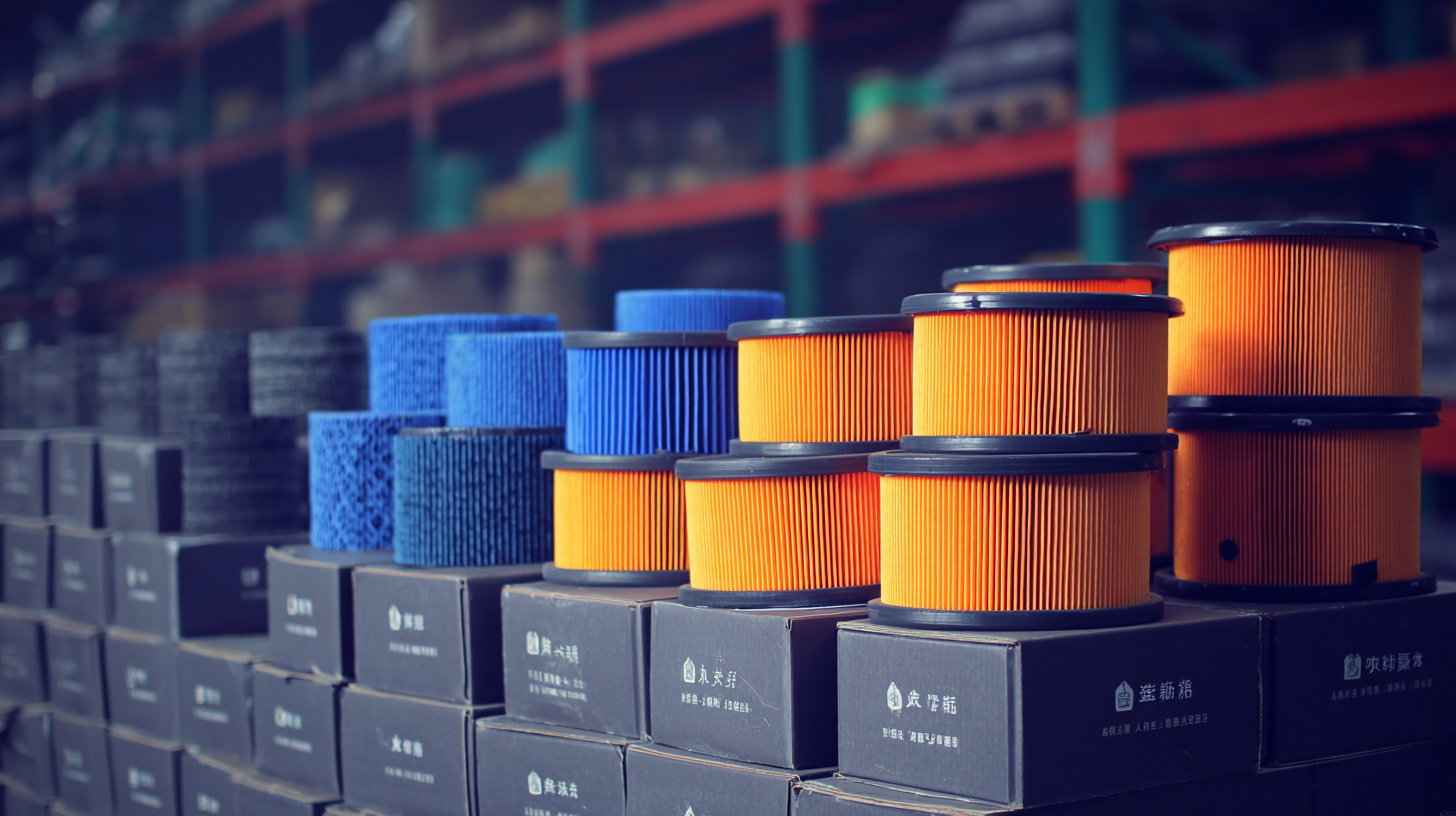
How Chinese Manufacturing is Revolutionizing the Best Auto Filters Market with Unmatched Quality
In recent years, the auto filters market has witnessed a transformative wave driven by advancements in Chinese manufacturing. As global demand for high-quality auto filters increases, industry reports indicate that the market is projected to grow from $4.8 billion in 2021 to over $6 billion by 2026, reflecting a compound annual growth rate (CAGR) of 5.3%. This robust growth is largely fueled by China's strategic investments in innovative technologies and stringent quality control measures that enhance product reliability. The country's capability to produce premium auto filters at competitive prices has positioned it as a leader in the sector, influencing both domestic and international markets.

With a focus on sustainability and efficiency, Chinese manufacturers are setting new benchmarks for quality, thereby revolutionizing the best auto filters market and ensuring that consumers worldwide benefit from superior filtering solutions.
The Impact of Chinese Manufacturing on Global Auto Filter Quality Standards
The rise of Chinese manufacturing has significantly impacted global auto filter quality standards, setting new benchmarks within the industry. With advanced technology and rigorous production processes, Chinese manufacturers have consistently delivered filters that not only meet but often exceed international quality expectations. This push for excellence has driven competitors worldwide to reevaluate their own manufacturing practices, fostering an environment of innovation and higher standards across the board.
As a result, the auto filter market is witnessing a remarkable transformation. Manufacturers are compelled to adopt stricter quality control measures and invest in research and development to keep pace with Chinese advancements. The collaborative dynamic between quality improvement and competitive pricing has made it possible for consumers to access superior filters at more affordable prices. Consequently, Chinese manufacturing does not just influence standards; it shapes the future of the global auto filter market, promoting a culture of quality-driven innovation.
Key Innovations in Auto Filter Technology from Chinese Manufacturers
Chinese manufacturing is making tremendous strides in the auto filters market, driven by a series of key innovations that set these products apart in terms of quality and performance. One of the standout advancements is the introduction of advanced filtration technologies, such as electrostatic and synthetic media, which significantly enhance the dirt-holding capacity and lifespan of filters. These innovations not only improve the overall efficiency of engines but also contribute to better fuel economy and reduced emissions, aligning with global sustainability goals.
Another crucial development is in the realm of durability and resistance to extreme conditions. Many Chinese manufacturers are now utilizing high-quality materials that withstand harsh environments, ensuring that their auto filters perform reliably even in tough conditions. Moreover, automated production processes and rigorous quality control measures have allowed manufacturers to maintain consistency in their products, minimizing defects and ensuring that consumers receive filters that meet the highest standards. As a result, the reputation of Chinese-made auto filters is rapidly growing, as customers increasingly recognize the unmatched quality and cutting-edge technology behind these innovations.
Market Growth Statistics: Chinese Manufacturing's Share in the Auto Filter Industry
The auto filter industry has witnessed remarkable growth over the past decade, largely driven by advancements in Chinese manufacturing. According to a report by MarketsandMarkets, the global automotive filter market is projected to reach USD 18.3 billion by 2027, growing at a CAGR of 6.5% from 2020. China's contribution to this market cannot be overstated, as it accounted for approximately 35% of global production in recent years. This dominance is attributed to the country's robust manufacturing capabilities, competitive labor costs, and an increasing focus on quality standards.
One of the most significant trends fueling this growth is the rising demand for high-efficiency filters driven by stricter environmental regulations and consumer preference for enhanced vehicle performance. A study by Frost & Sullivan highlights that the demand for high-efficiency air filters alone is expected to grow at a staggering rate of 8.2% annually, with Chinese manufacturers leading the way due to their innovation in filter technology. The integration of advanced materials and production techniques ensures that these products not only meet but often exceed international quality benchmarks, revolutionizing the automotive filter market.
How Chinese Manufacturing is Revolutionizing the Best Auto Filters Market with Unmatched Quality - Market Growth Statistics
| Year | Market Share (%) | Growth Rate (%) | Production Volume (Million Units) | Average Price (USD) |
|---|---|---|---|---|
| 2019 | 30 | 5 | 25 | 15.00 |
| 2020 | 32 | 6 | 27 | 15.50 |
| 2021 | 35 | 8 | 30 | 16.00 |
| 2022 | 38 | 7 | 32 | 16.50 |
| 2023 | 40 | 10 | 35 | 17.00 |
Comparative Analysis: Chinese vs. Western Auto Filter Production Quality
In recent years, the auto filter market has witnessed a significant shift as Chinese manufacturers have emerged as key players, challenging the dominance of traditional Western brands. This comparative analysis dives into the production quality of auto filters in China versus the West. Chinese manufacturing has leveraged cutting-edge technology and streamlined processes, allowing for high-volume production without compromising quality. The use of advanced materials and rigorous testing protocols ensures that these filters meet or exceed industry standards, providing a competitive edge in performance and durability.

On the other hand, while Western manufacturers have a legacy of quality craftsmanship, they often face higher production costs and longer lead times. This can limit their ability to innovate quickly and adapt to market demands. As the global market shifts towards more affordable yet high-performing options, the ability of Chinese manufacturers to offer superior quality at lower prices becomes increasingly attractive to consumers. The rising standards within Chinese production facilities not only challenge preconceived notions of quality but also redefine the global auto filter landscape, ultimately benefiting end-users with better options.
Challenges and Solutions in Sourcing Auto Filters from Chinese Manufacturers
When sourcing auto filters, choosing the right Chinese manufacturer can pose challenges that require careful navigation. Quality assurance remains a primary concern for many buyers, as inconsistent standards can lead to inferior products. To mitigate this risk, it is essential for businesses to conduct thorough due diligence. This involves auditing potential partners, reviewing certifications, and seeking customer testimonials to ensure that the manufacturers can meet the desired quality benchmarks.
Another significant challenge is supply chain reliability. Fluctuations in demand and logistical complexities can severely affect the timely delivery of products. To tackle this issue, companies can establish strong communication channels with manufacturers and implement just-in-time inventory systems. Additionally, diversifying the supplier base can provide a buffer against unexpected disruptions and foster a more resilient sourcing strategy. By embracing these solutions, businesses can make the most of the advantages offered by Chinese manufacturers while overcoming the hurdles in the auto filters market.

